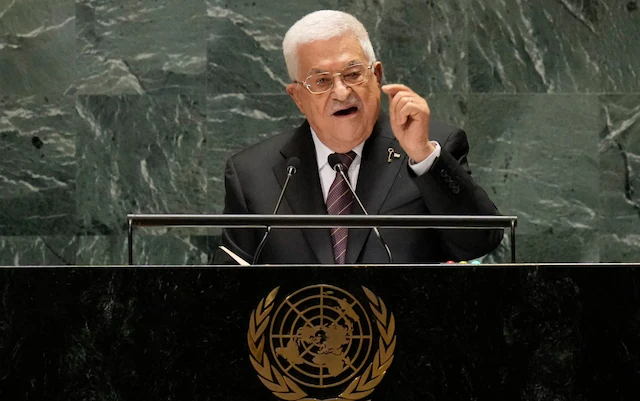U.S. Blocks Abbas from U.N. Visit as Allies Move Toward Recognising Palestinian Statehood

The United States has announced that Palestinian Authority President Mahmoud Abbas will not be permitted to enter the country next month to attend the United Nations General Assembly in New York, where multiple allied nations are expected to endorse recognition of a Palestinian state.
According to a State Department official, the decision will impact Abbas and around 80 other Palestinians. Visas will be denied or canceled for members associated with the Palestine Liberation Organization (PLO) and the Palestinian Authority (PA), both based in the West Bank.
Abbas had intended to take part in the annual high-level session of the U.N. General Assembly in Manhattan. He was also scheduled to attend a separate summit where countries including Britain, France, Australia, and Canada have stated plans to officially support Palestinian statehood.
His office reacted with disbelief, calling the visa decision a breach of international obligations under the U.N.’s founding agreement with the U.S. government.
The 1947 headquarters agreement between the United Nations and the United States obligates the host country to permit access for foreign diplomats attending U.N. functions. However, the U.S. has long asserted its right to deny entry on the basis of security risks, foreign policy concerns, or links to extremism.
Nabil Abu Rudeineh, a spokesperson for Abbas, called on Saturday for Washington to reconsider its decision.
“We call on the U.S. administration to reverse this decision, which contradicts international law, specifically the Headquarters Agreement between the United Nations and the United States, which prohibits preventing any delegation from access,” he said.
European leaders voiced strong objections to the U.S. move during an EU meeting in Copenhagen.
“A UN General Assembly ‘cannot be subject to any restrictions on access,’” French Foreign Minister Jean-Noel Barrot told reporters.
Ireland’s Foreign Minister Simon Harris said the EU should protest the decision “in the strongest possible terms.”
Spain’s Prime Minister Pedro Sanchez said in a statement on Saturday that he had spoken with Abbas to express Madrid’s support and he called the visa decision “unjust.”
“Palestine has the right to make its voice heard at the United Nations and in all international forums,” he said on X.
The U.S. government justified the visa denials by pointing to claims that both the PLO and PA have not taken adequate steps to renounce extremist activity while simultaneously seeking unilateral international recognition. Palestinian leaders dispute those accusations, saying decades of peace negotiations overseen by Washington have failed to deliver an end to Israeli occupation or achieve statehood.
“(It) is in our national security interests to hold the PLO and PA accountable for not complying with their commitments, and for undermining the prospects for peace,” the department said.
The Palestinian mission to the U.N. in New York, staffed by permanent representatives, will not be affected by the visa restrictions.
U.N. spokesperson Stephane Dujarric confirmed the organization will be addressing the matter with the U.S.In a historical parallel, the U.S. barred Yasser Arafat from entering the country in 1988. That year, the General Assembly was relocated to Geneva so Arafat could deliver his address.
The U.S. also reiterated that it expects Palestinian authorities to denounce terrorism, including the Hamas-led attack on Israel in October 2023, which triggered the ongoing conflict in Gaza.
In June, Abbas had written to the president of France condemning the Hamas assault and calling for the release of hostages taken by the group.
Israeli officials welcomed Washington’s decision. Israeli Foreign Minister Gideon Saar expressed support for the move.
The visa restrictions come amid rising tensions between the U.S. and some of its traditional partners, who are pressing ahead with plans to recognize Palestine as a state at the upcoming U.N. session. Their shift reflects growing frustration over Israel’s actions in Gaza, where the military campaign has caused widespread destruction and a severe humanitarian crisis. Critics have also condemned continued Israeli settlement expansion in the West Bank, an area central to Palestinian aspirations for statehood.
To date, at least 147 of the 193 member nations in the United Nations recognize Palestine as a sovereign state. Palestinians currently hold observer status at the U.N., similar to the Vatican.
Palestinian leaders have consistently pushed for a state based on territories occupied by Israel since 1967, including the West Bank, Gaza Strip, and East Jerusalem. The U.S. maintains its position that Palestinian statehood must come through direct negotiations with Israel.
